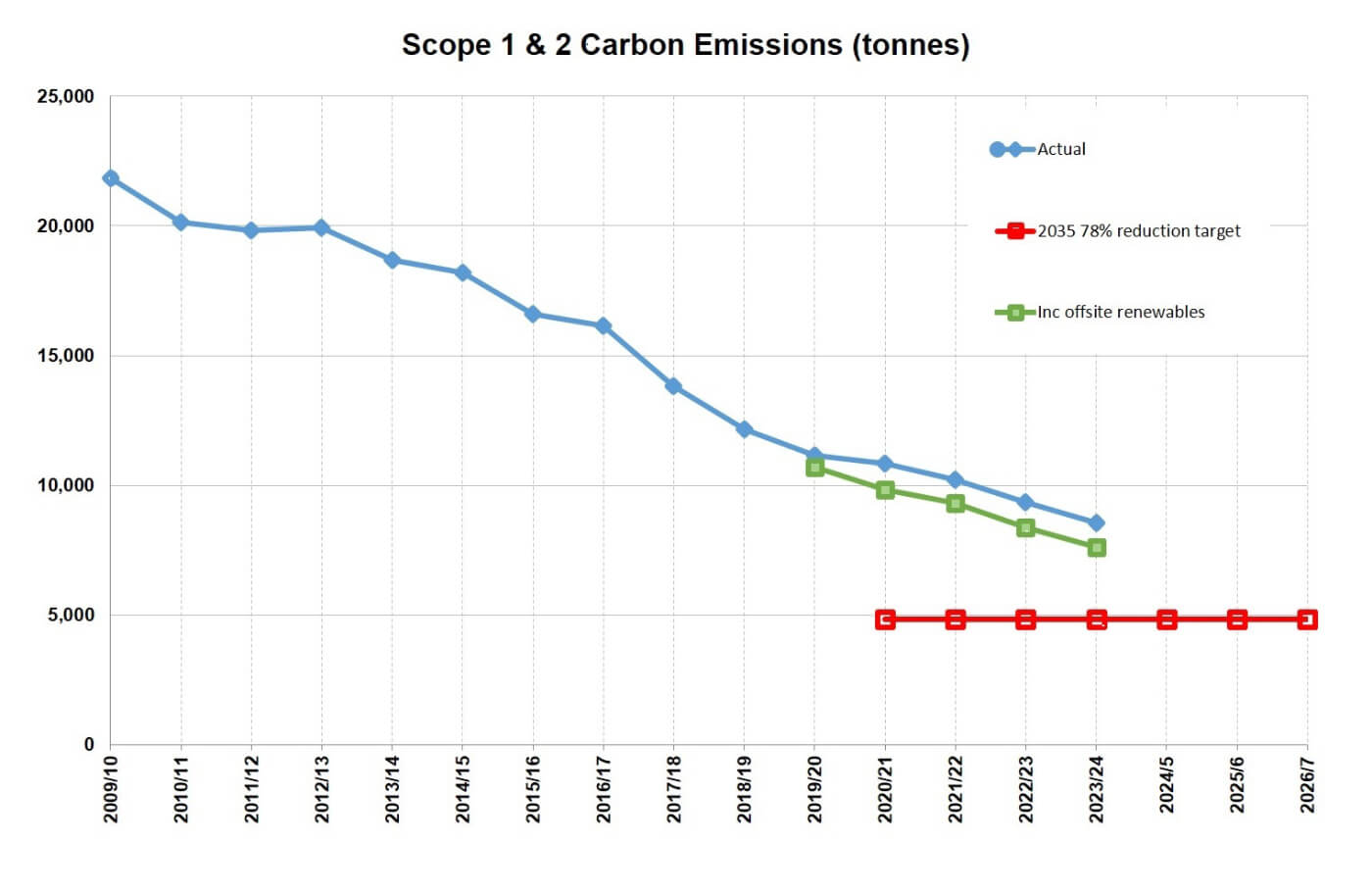Greenhouse gas emissions are categorised into three groups or 'Scopes' by the most widely-used international accounting tool, the Greenhouse Gas (GHG) Protocol:
- Scope 1 covers direct emissions that occur from sources owned or controlled by the University
- Scope 2 covers indirect emissions from the generation of purchased electricity consumed by the University
- Scope 3 includes all other indirect emissions that occur in the University’s value chain.
Brunel University London (BUL) has set a target to become net zero in all operational Scope 1 and 2 emissions by 2040; the challenge to reach this target is difficult to minimise and a step change in the way we deliver heat and power to the university is required to achieve the actions necessary to slash our carbon footprint. BUL's Carbon Management Plan 2022-25 (.pdf download) sets out our strategic approach to ensure that we are equipped to meet our carbon reduction objectives and targets, and additionally, to achieve both budget savings and to enhance our environmental reputation as an energy efficient institution. Over the next couple of years we will develop a new Heat and Power Strategy that will play a large part in shaping our roadmap to next zero. Brunel has not currently set a target for Scope 3 emissions but has the intention of accurately collating the emissions over the next 2 years and analysing areas where reductions can be made.
Achievements to date:
- In the Clean Growth Strategy, the Government introduced a voluntary target for the wider public and higher education sectors in England. This target was to reduce greenhouse gas emissions across these sectors by 30% by 2020/21, compared to a 2009/10 baseline.
- Brunel set its own more stringent target in the 2015 Carbon Management Plan, this was to reduce its Scope 1 and 2 emissions against its 2005/06 baseline of 21,508 tCO2e by 43% by 2020/21 to 12,260 tCO2e. This target was surpassed in 2018/19 when the University’s Scope 1 and Scope 2 emissions were calculated to be 12,160 tCO2e.
 Graph of our progress to date from the original baseline (.jpg download)
Graph of our progress to date from the original baseline (.jpg download)